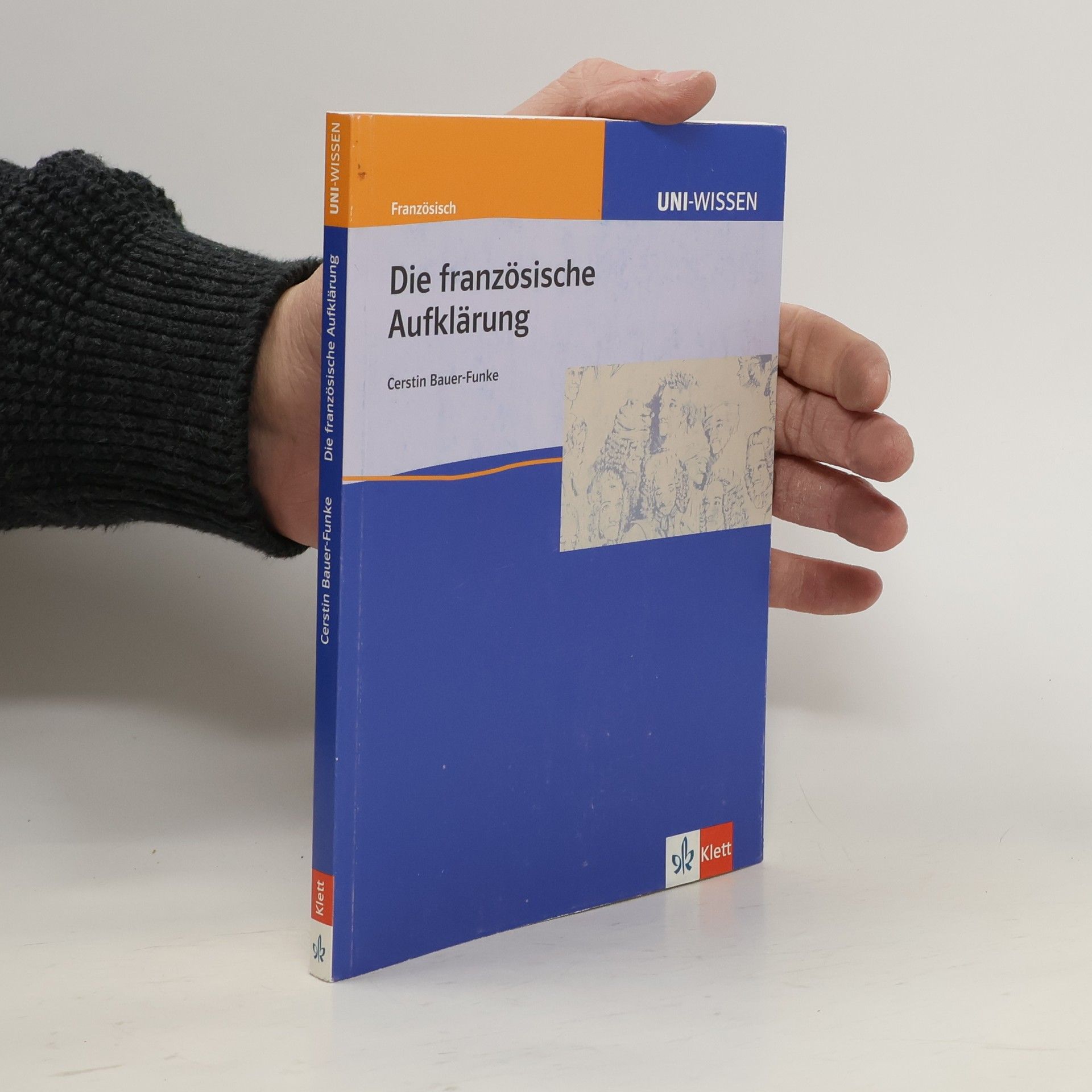Die französische Aufklärung
- 160pages
- 6 heures de lecture
Cerstin Bauer-Funke Zu den mentalitätsgeschichtlich herausragenden Epochen Frankreichs gehört Le Siècle des Lumières. Der Band zeichnet die gesellschaftlichen Umbrüche nach, stellt die grundlegenden literarischen Zeugnisse vor, präsentiert die großartige Encyclopédie und erhellt die Bedingungsgemeinschaft von Literatur und Gesellschaft in verschiedenen Stadien des 18. Jahrhunderts. Er schließt mit Ausführungen zur soziokulturellen und literarischen Situation vor und während der Revolution.
